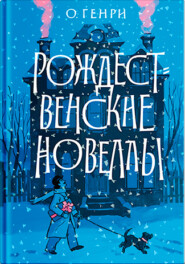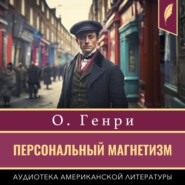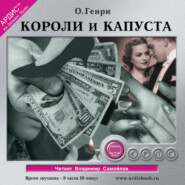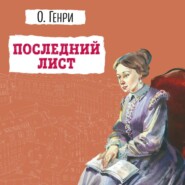По всем вопросам обращайтесь на: info@litportal.ru
(©) 2003-2024.
✖
Strictly Business: More Stories of the Four Million
Настройки чтения
Размер шрифта
Высота строк
Поля
The ways of Mr. Kelley could not but succeed. The General, bewildered and dismayed by the resounding streets, welcomed his deliverer as a caballero with a most disinterested heart.
"I have a desire," said the General, "to return to the hotel of O'Brien, in which I am stop. Caramba! señor, there is a loudness and rapidness of going and coming in the city of this Nueva York."
Mr. Kelley's politeness would not suffer the distinguished Colombian to brave the dangers of the return unaccompanied. At the door of the Hotel Español they paused. A little lower down on the opposite side of the street shone the modest illuminated sign of El Refugio. Mr. Kelley, to whom few streets were unfamiliar, knew the place exteriorly as a "Dago joint." All foreigners Mr. Kelley classed under the two heads of "Dagoes" and Frenchmen. He proposed to the General that they repair thither and substantiate their acquaintance with a liquid foundation.
An hour later found General Falcon and Mr. Kelley seated at a table in the conspirator's corner of El Refugio. Bottles and glasses were between them. For the tenth time the General confided the secret of his mission to the Estados Unidos. He was here, he declared, to purchase arms – 2,000 stands of Winchester rifles – for the Colombian revolutionists. He had drafts in his pocket drawn by the Cartagena Bank on its New York correspondent for $25,000. At other tables other revolutionists were shouting their political secrets to their fellow-plotters; but none was as loud as the General. He pounded the table; he hallooed for some wine; he roared to his friend that his errand was a secret one, and not to be hinted at to a living soul. Mr. Kelley himself was stirred to sympathetic enthusiasm. He grasped the General's hand across the table.
"Monseer," he said, earnestly, "I don't know where this country of yours is, but I'm for it. I guess it must be a branch of the United States, though, for the poetry guys and the schoolmarms call us Columbia, too, sometimes. It's a lucky thing for you that you butted into me to-night. I'm the only man in New York that can get this gun deal through for you. The Secretary of War of the United States is me best friend. He's in the city now, and I'll see him for you to-morrow. In the meantime, monseer, you keep them drafts tight in your inside pocket. I'll call for you to-morrow, and take you to see him. Say! that ain't the District of Columbia you're talking about, is it?" concluded Mr. Kelley, with a sudden qualm. "You can't capture that with no 2,000 guns – it's been tried with more."
"No, no, no!" exclaimed the General. "It is the Republic of Colombia – it is a g-r-reat republic on the top side of America of the South. Yes. Yes."
"All right," said Mr. Kelley, reassured. "Now suppose we trek along home and go by-by. I'll write to the Secretary to-night and make a date with him. It's a ticklish job to get guns out of New York. McClusky himself can't do it."
They parted at the door of the Hotel Español. The General rolled his eyes at the moon and sighed.
"It is a great country, your Nueva York," he said. "Truly the cars in the streets devastate one, and the engine that cooks the nuts terribly makes a squeak in the ear. But, ah, Señor Kelley – the señoras with hair of much goldness, and admirable fatness – they are magnificas! Muy magnificas!"
Kelley went to the nearest telephone booth and called up McCrary's café, far up on Broadway. He asked for Jimmy Dunn.
"Is that Jimmy Dunn?" asked Kelley.
"Yes," came the answer.
"You're a liar," sang back Kelley, joyfully. "You're the Secretary of War. Wait there till I come up. I've got the finest thing down here in the way of a fish you ever baited for. It's a Colorado-maduro, with a gold band around it and free coupons enough to buy a red hall lamp and a statuette of Psyche rubbering in the brook. I'll be up on the next car."
Jimmy Dunn was an A. M. of Crookdom. He was an artist in the confidence line. He never saw a bludgeon in his life; and he scorned knockout drops. In fact, he would have set nothing before an intended victim but the purest of drinks, if it had been possible to procure such a thing in New York. It was the ambition of "Spider" Kelley to elevate himself into Jimmy's class.
These two gentlemen held a conference that night at McCrary's. Kelley explained.
"He's as easy as a gumshoe. He's from the Island of Colombia, where there's a strike, or a feud, or something going on, and they've sent him up here to buy 2,000 Winchesters to arbitrate the thing with. He showed me two drafts for $10,000 each, and one for $5,000 on a bank here. 'S truth, Jimmy, I felt real mad with him because he didn't have it in thousand-dollar bills, and hand it to me on a silver waiter. Now, we've got to wait till he goes to the bank and gets the money for us."
They talked it over for two hours, and then Dunn said; "Bring him to No. – Broadway, at four o'clock to-morrow afternoon."
In due time Kelley called at the Hotel Español for the General. He found the wily warrior engaged in delectable conversation with Mrs. O'Brien.
"The Secretary of War is waitin' for us," said Kelley.
The General tore himself away with an effort.
"Ay, señor," he said, with a sigh, "duty makes a call. But, señor, the señoras of your Estados Unidos – how beauties! For exemplification, take you la Madame O'Brien – que magnifica! She is one goddess – one Juno – what you call one ox-eyed Juno."
Now Mr. Kelley was a wit; and better men have been shriveled by the fire of their own imagination.
"Sure!" he said with a grin; "but you mean a peroxide Juno, don't you?"
Mrs. O'Brien heard, and lifted an auriferous head. Her businesslike eye rested for an instant upon the disappearing form of Mr. Kelley. Except in street cars one should never be unnecessarily rude to a lady.
When the gallant Colombian and his escort arrived at the Broadway address, they were held in an anteroom for half an hour, and then admitted into a well-equipped office where a distinguished looking man, with a smooth face, wrote at a desk. General Falcon was presented to the Secretary of War of the United States, and his mission made known by his old friend, Mr. Kelley.
"Ah – Colombia!" said the Secretary, significantly, when he was made to understand; "I'm afraid there will be a little difficulty in that case. The President and I differ in our sympathies there. He prefers the established government, while I – " the secretary gave the General a mysterious but encouraging smile. "You, of course, know, General Falcon, that since the Tammany war, an act of Congress has been passed requiring all manufactured arms and ammunition exported from this country to pass through the War Department. Now, if I can do anything for you I will be glad to do so to oblige my old friend, Mr. Kelley. But it must be in absolute secrecy, as the President, as I have said, does not regard favorably the efforts of your revolutionary party in Colombia. I will have my orderly bring a list of the available arms now in the warehouse."
The Secretary struck a bell, and an orderly with the letters A. D. T. on his cap stepped promptly into the room.
"Bring me Schedule B of the small arms inventory," said the Secretary.
The orderly quickly returned with a printed paper. The Secretary studied it closely.
"I find," he said, "that in Warehouse 9, of Government stores, there is shipment of 2,000 stands of Winchester rifles that were ordered by the Sultan of Morocco, who forgot to send the cash with his order. Our rule is that legal-tender money must be paid down at the time of purchase. My dear Kelley, your friend, General Falcon, shall have this lot of arms, if he desires it, at the manufacturer's price. And you will forgive me, I am sure, if I curtail our interview. I am expecting the Japanese Minister and Charles Murphy every moment!"
As one result of this interview, the General was deeply grateful to his esteemed friend, Mr. Kelley. As another, the nimble Secretary of War was extremely busy during the next two days buying empty rifle cases and filling them with bricks, which were then stored in a warehouse rented for that purpose. As still another, when the General returned to the Hotel Español, Mrs. O'Brien went up to him, plucked a thread from his lapel, and said:
"Say, señor, I don't want to 'butt in,' but what does that monkey-faced, cat-eyed, rubber-necked tin horn tough want with you?"
"Sangre de mi vida!" exclaimed the General. "Impossible it is that you speak of my good friend, Señor Kelley."
"Come into the summer garden," said Mrs. O'Brien. "I want to have a talk with you."
Let us suppose that an hour has elapsed.
"And you say," said the General, "that for the sum of $18,000 can be purchased the furnishment of the house and the lease of one year with this garden so lovely – so resembling unto the patios of my cara Colombia?"
"And dirt cheap at that," sighed the lady.
"Ah, Dios!" breathed General Falcon. "What to me is war and politics? This spot is one paradise. My country it have other brave heroes to continue the fighting. What to me should be glory and the shooting of mans? Ah! no. It is here I have found one angel. Let us buy the Hotel Español and you shall be mine, and the money shall not be waste on guns."
Mrs. O'Brien rested her blond pompadour against the shoulder of the Colombian patriot.
"Oh, señor," she sighed, happily, "ain't you terrible!"
Two days later was the time appointed for the delivery of the arms to the General. The boxes of supposed rifles were stacked in the rented warehouse, and the Secretary of War sat upon them, waiting for his friend Kelley to fetch the victim.
Mr. Kelley hurried, at the hour, to the Hotel Español. He found the General behind the desk adding up accounts.
"I have decide," said the General, "to buy not guns. I have to-day buy the insides of this hotel, and there shall be marrying of the General Perrico Ximenes Villablanca Falcon with la Madame O'Brien."
Mr. Kelley almost strangled.
"Say, you old bald-headed bottle of shoe polish," he spluttered, "you're a swindler – that's what you are! You've bought a boarding house with money belonging to your infernal country, wherever it is."
"Ah," said the General, footing up a column, "that is what you call politics. War and revolution they are not nice. Yes. It is not best that one shall always follow Minerva. No. It is of quite desirable to keep hotels and be with that Juno – that ox-eyed Juno. Ah! what hair of the gold it is that she have!"
Mr. Kelley choked again.
"Ah, Senor Kelley!" said the General, feelingly and finally, "is it that you have never eaten of the corned beef hash that Madame O'Brien she make?"
III
BABES IN THE JUNGLE

















